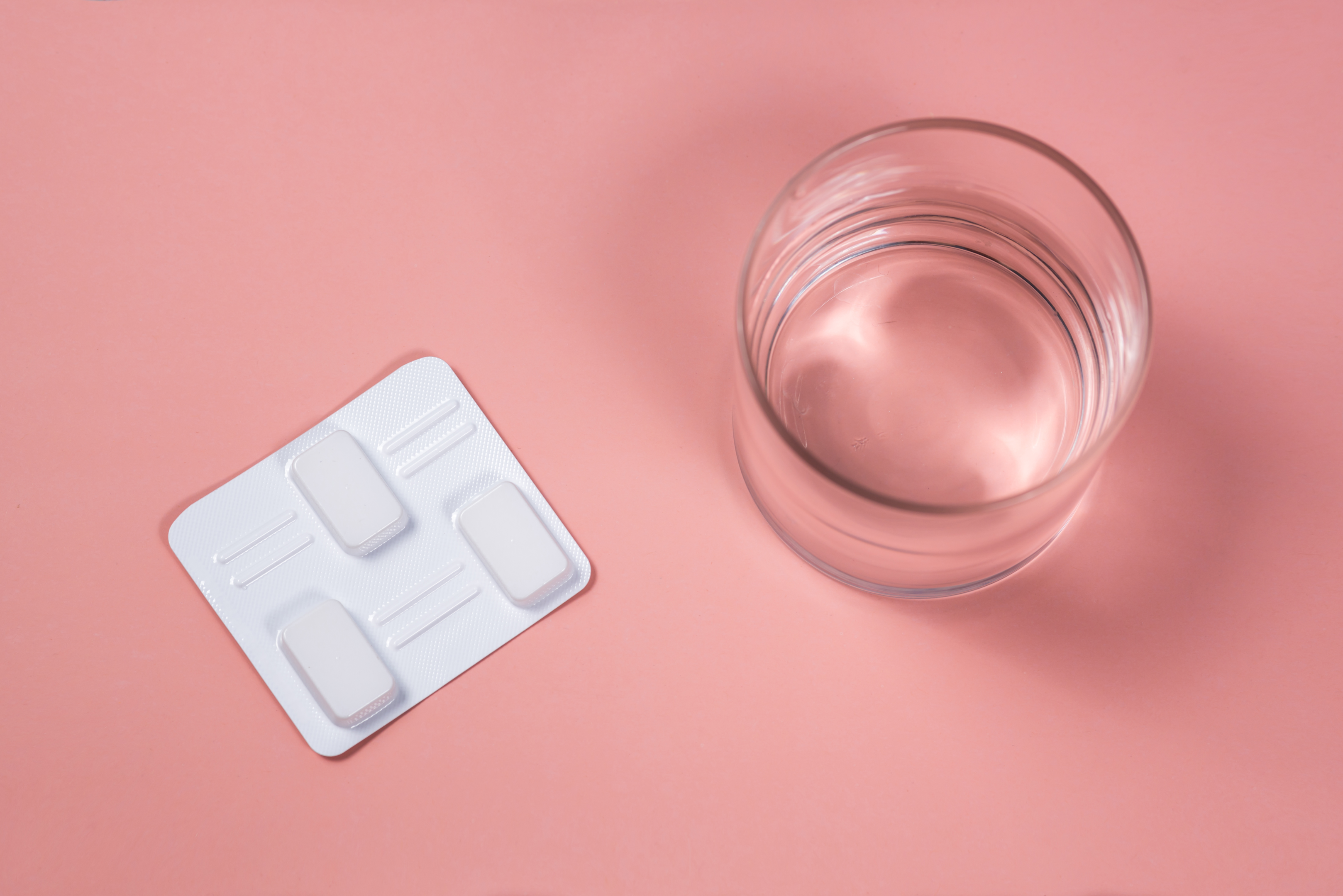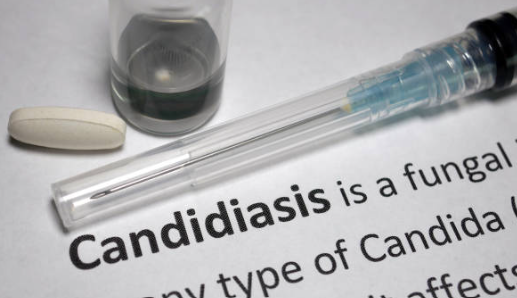Immediate Thrush Relief: in 7 Steps



Thrush, a common yeast infection, affects both a man and a woman. Although, having this infection can cause discomfort and recur many times. Experts do not classify it as a sexually transmitted infection (STI).
Thrush is an infection caused by a fungus called Candida albicans, which may affect certain parts of the body, such as the mouth, throat, and skin. Vaginal thrush is common – about three-quarters of women will suffer from it at some point in their lives. Up to one in 20 women experience repeated episodes of (recurring) thrush infections.
Thrush can happen at any age but is most commonly seen in women in their 20s and 30s. Men can also get thrush, including on the penis. The infection usually develops for no definite reason. However, several factors can predispose someone to develop thrush. For instance, the vagina has mucus and harmless bacteria that help to protect it from infection caused by Candida and other germs. These biological defences may be disturbed under certain circumstances which put you at risk of acquiring thrush symptoms and (or) the infection itself.
Pregnancy
Diabetes
Taking antibiotics
Weakened immune system due to chemotherapy for certain cancers or taking high-dose steroids, etc.
Although it can be transmitted via unprotected sex, thrush is not an STI. It can be simply described as an overgrowth of the candida yeast, which is naturally present in the body but has not been causing any problems until certain factors bring biological alterations. Thrush can further affect a person's sex life unless appropriately treated.
The human immune system along with the good bacteria that normally live on the skin and in the vagina usually controls the growth of Candida sp. The population of this fungus may increase during favourable conditions thereby possibly invading the vagina and causing thrush symptoms to develop.
These favourable conditions are often associated with the changes in the bacteria within the vagina when antibiotics are taken, with hormonal changes, or with problems linked to the immune system. Thrush is commonly a result of C. albicans but can also be caused by other species of Candida such as C. glabrata or C. tropicalis.
Several common symptoms of thrush are easy to notice and recognize. Since every person is different, these symptoms can vary, can be either mild, moderate, or more complex, and can sometimes happen with no symptoms at all.
Non-smelly white discharge from the vagina that appears like cottage cheese
Irritation and itchiness in the vaginal area
A stingy and sore sensation when having sex or urination
Irritation, redness, and burning sensation around the head of the penis and (or) under the foreskin
A white discharge that may resemble cottage cheese
The foul smell down there
Difficulty when pulling back the foreskin
Other areas of skin may also be infected such as the groin, the armpits, and between the fingers.
It commonly causes red rashes that are painful and itchy at the same. These rashes scale over with yellow or white discharge and are more noticeable on lighter skin.
Testing is not at all times necessary to confirm vaginal thrush. Diagnosing the infection typically relies on the general symptoms and signs. A vaginal discharge is not necessarily a result of having thrush since other factors may also trigger the unusual discharge. However, thrush is more certain if the discharge is non-smelly, appears to be creamy or white in colour, and is accompanied by itchiness.
A person who assumes to experience thrush and has had treatment that does not drive off the symptoms may be required to have tests. These tests are carried out after being examined by a doctor.
A pH test. This examines the level of acidity of the vagina. The acidity determines the possible causes of a discharge--either due to vaginal thrush or bacterial vaginosis. This type of test involves inserting a test strip into the vagina in which any change in the colour of the strips confirms thrush infection. A pH level of not more than 4.5 indicates thrush.
A swab. This test uses a stick with a cotton bud at its end to collect the sample of the vaginal discharge to be subjected to laboratory analysis. The result of this test determines the occurrence of thrush or other infections and further identifies which type of Candida is the causative agent. This swab can also be done at home healthcare professional instructs.
Tests for other possible infections. Additional swab tests may be done to make sure that no other types of vaginal infections are present.
Urine tests. Urine may be examined to screen for sugar. Doing so identifies whether a patient has diabetes since this disease is a contributing factor to thrush. This is usually done if the thrush is recurring. Urine tests may also check for infection, as thrush and a urine infection can be difficult to distinguish from each other sometimes.
As previously stated, the obvious signs that a woman could be suffering thrush can be itch in the vaginal area, thick white discharge, and pain when having sex and (or) during the passing of urine.
A man, on the other hand, may also observe white discharge, irritation and redness around the head of the penis, and a foul odour. Almost all of these symptoms are similar to those that characterize an STI.
Patients may want to visit their GP or local sexual health clinic for an evaluation should they have recent unprotected sex. These healthcare experts are responsible for medically diagnosing thrush via an examination or tests. These tests are necessary to determine whether the symptoms characterize thrush or STI.
The infection is normally treated without undergoing tests if symptoms occur to result from recurrence. The patients are already aware of the infection and can medicate it themselves. In fact, effective treatments may be bought from pharmacies with no prescription.
However, since a vaginal discharge or vulvar itch is not always caused by thrush alone, the symptoms can sometimes be attributed to other health conditions. Nevertheless, the following serve as signals when it may be best to seek advice from an expert if you are worried about having thrush.
You are under 16 or over 60 years old
You are having more than two episodes of thrush within six months
Treatment has become ineffective
You are a pregnant woman or a breastfeeding mother
Your immune system has been weakened due to HIV infection, poorly controlled diabetes, or undergoing chemotherapy
You experience abnormal bleeding
You have abdominal pain
You feel generally unwell in addition to the vaginal and vulvar symptoms
You or your partner have a history of having STI

Tests for thrush can be carried out at home if the person prefers doing it themselves or if they have had thrush diagnosed before and is already knowledgeable about the symptoms.
Over-the-counter (OTC) thrush tests are available at either the local pharmacy or online. These tests are capable of diagnosing common vaginal infections. Tests commonly come with clear and straightforward instructions and give immediate results which rely on the symptoms a person has.
For instance, the Canestest from Canesten will require swabbing the inside of the vagina and waiting to note what colour the tester turns into. This change of colour will specify the type of vaginal infection present. The result of this test helps decide what treatment option is best, whether as recommended by GP or a Pharmacist, or as what is available as an OTC treatment.
Antifungal medicine is generally a staple for immediate relief from common thrush symptoms. This may come as a tablet to be administered orally, a tablet to be placed into the vagina (known as a pessary), or a cream to alleviate the irritation. The infection is expected to resolve within seven to 14 days after the start of thrush treatment. Meanwhile, no treatment is needed for your partner unless symptoms are manifested.
To order thrush treatment online, view our range of antifungal medications here.
Thrush treatments are usually taken for longer (up to six months) in case of recurrent thrush (more than four episodes within one year). Doctors can help determine its cause, may it be period, sex, or other causes. They'll recommend how often and how long a treatment should be used.
Although thrush poses no harm to babies, a GP, midwife, or local pharmacist should be consulted before taking any thrush medication. A vaginal cream or pessary is the most suitable treatment for pregnant women or breastfeeding moms, not a pill. The applicator should be placed very carefully to avoid damaging the cervix. A pessary can also be manually inserted if desired. Any concerns about intravaginal treatment can be discussed with your midwife for assurance.
A longer course of treatment for thrush will be most possibly advised by your GP.
Applying pessaries and creams to treat vaginal thrush can sometimes result in damaged latex condoms and diaphragms. Seek medical advice when using these (condoms and diaphragms) for contraception or protection against STDs.
No matter the mode of treatment, the patient information leaflet enclosed in the packet should be carefully read before starting the procedure. Any side effects related to the medication are possible and patients are advised to seek medical attention should these be experienced. Patients can also speak with their GP or pharmacist if they have queries about thrush treatment.
Antifungal medicines can be purchased from pharmacies if the patient has a history of being diagnosed with thrush in the past, making them well-versed in the symptoms. Pharmacists usually assist you by recommending the best treatment. It should be noted that antifungal medicines are not to be used more than twice in six months without discussing it with a pharmacist or doctor.
Thrush tests can be properly done in the privacy of your home. Self-tests will enable you to diagnose yourself and then identify a proper thrush treatment option which will depend on the results of the test and the symptoms experienced. Meanwhile, home treatments for thrush may be available in the form of:
Creams – antifungal creams or vaginal creams are applied to the affected area and gently smoothed into the skin to ease soreness and itching of the vagina
Pessaries – these are placed into the vagina. They work by going to the site of the thrush thereby clearing the cause of thrush. Examples of vaginal thrush treatments in the form of pessary include clotrimazole (Canesten) and econazole (Gyno-Pevaryl)
Tablets – these are to be taken orally. Once done, the medication within the capsule will fight the causative agent of the infection. There are two available tablets for treating thrush namely Fluconazole, taken as a single dose, and itraconazole, taken as two doses for a single given day.
Natural remedies are not advised to be used in treating thrush. Medical advice should be sought from a health professional who is an expert in offering advice about treatments that may be suitable to use and ways that can prevent thrush from recurring.
Mild yeast infections along with their symptoms generally clear up on their own without being treated, which could take three days to one week. Thrush symptoms that are experienced for one to two weeks should be consulted with a doctor. The pharmacist, your GP, or a nurse at the local sexual health clinic can suggest the most suitable treatment for you.
Like any other disease or infection, there are helpful precautions that lower the probability of developing thrush such as:
Take a shower instead of a bath
Wear cotton underwear (instead of synthetic underwear) and non-fitted clothing
Dry genitals after washing
Do not use scented deodorants or soaps on your genitals
Avoid any sexual intercourse until the thrush is completely treated
Thrush infection, as mentioned, is a common symptom for women and usually poses no danger. Still, you should seek a medical diagnosis if you think it's becoming severe or unusual. If you need to learn more about thrush and various treatments for the infection, we recommend you read more about it by clicking here.








Plus get the inside scoop on our latest content and updates in our monthly newsletter.